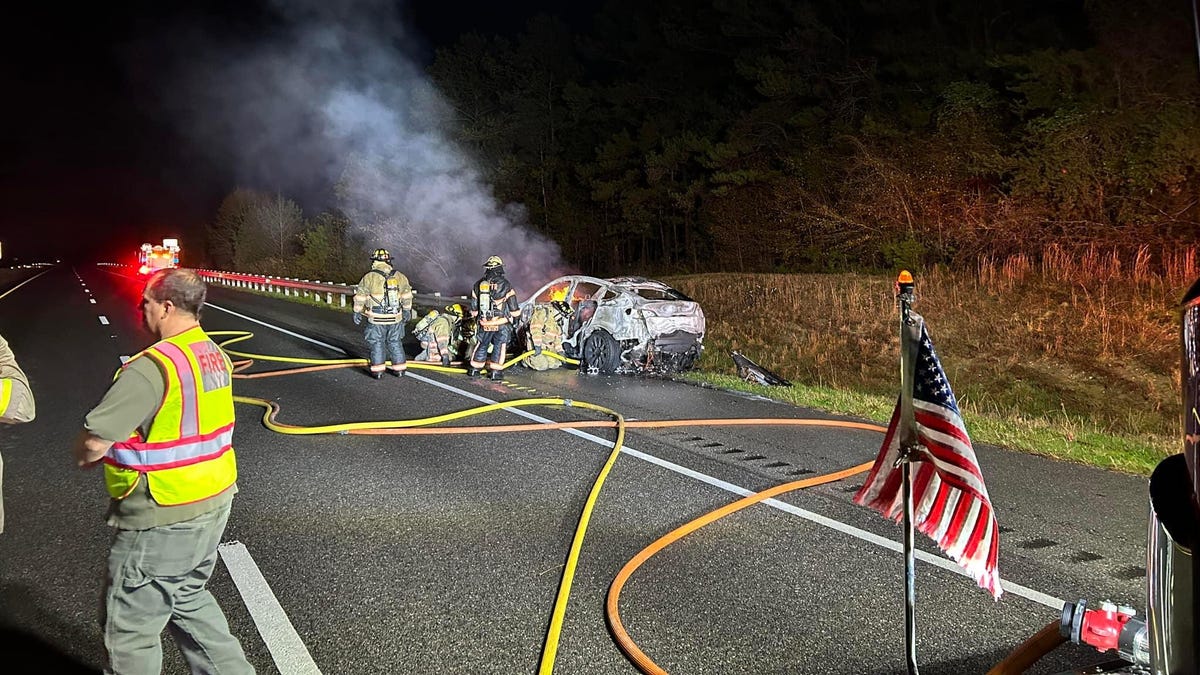A Tesla Model Y engulfed in flames closed an interstate highway and required the assistance of myriad Alabama emergency services on Christmas night. To extinguish the fire, Pine Level Firefighters reported using 36,000 gallons of water over the course of an hour, further highlighting the ways local services may struggle to deal with car crashes and fires in this new electrified era.
Pine Level firefighters were dispatched to the Autauga County scene at 11:14 p.m.; once there, they quickly realized they’d need help. Fire departments from Marbury, Booth, Independence, White City, Old Kingston and Verbena also responded to the fire, along with ambulance services, police, and the Alabama Department of Transportation.
It took two hose lines, 36,000 gallons of water, three engines, two rescues, one ambulance, four water tankers, one squad, one brush truck, three command vehicles, and a full hour to put out the flame in what the Pine Level Fire Department called “a first for Autauga County.”
The driver of the Model Y escaped the fire unharmed, authorities said, and was taken into police custody.
EV battery fires are notoriously difficult to extinguish; when a battery catches fire, it can’t be doused in water or “starved out” like normal fires resulting from combustion. Instead, the fire can cause something called “thermal runaway,” where one isolated fire can cause other battery cells to overheat and also ignite, releasing harmful fumes in the process thanks to the high heats. The residual heat can also cause the battery to re-ignite hours or even days later. Without any special equipment, it can take firefighters tens of thousands of gallons of water to attempt to quell the blaze, and even then, some experts simply suggest letting the fire burn out or dousing the vehicle in dirt.
Earlier this year, we reported on a different Tesla catching on fire and requiring 6,000 gallons of water to extinguish, while a fiery Nissan Leaf near Nashville required 45,000 gallons and several hours to put out. For context, a fire in a combustion-engined car generally requires about 500 to 1,000 gallons of water to completely extinguish.

